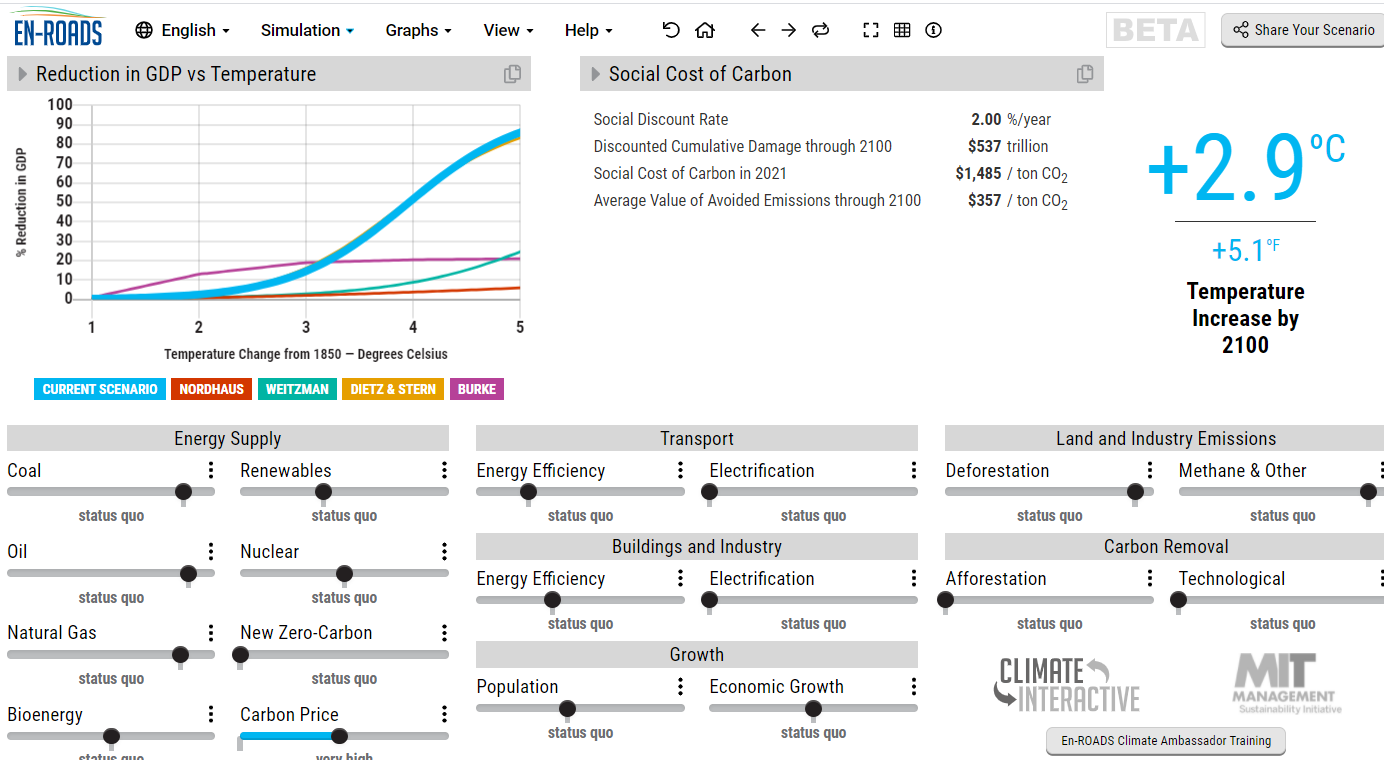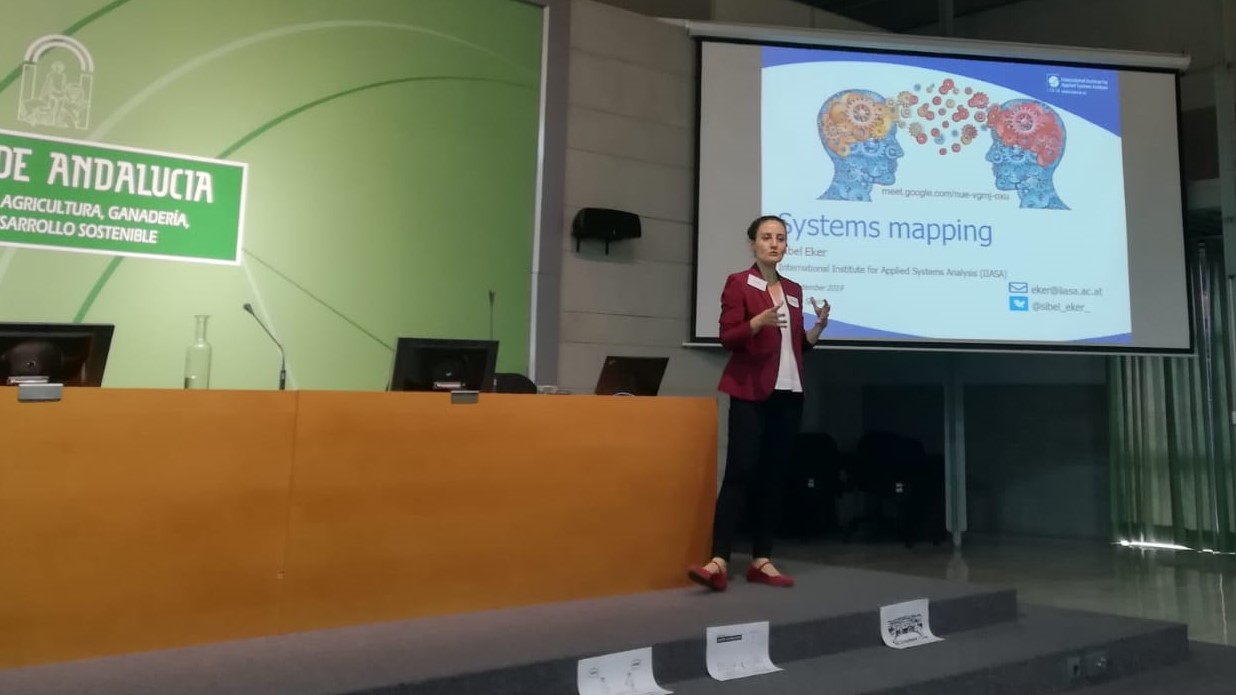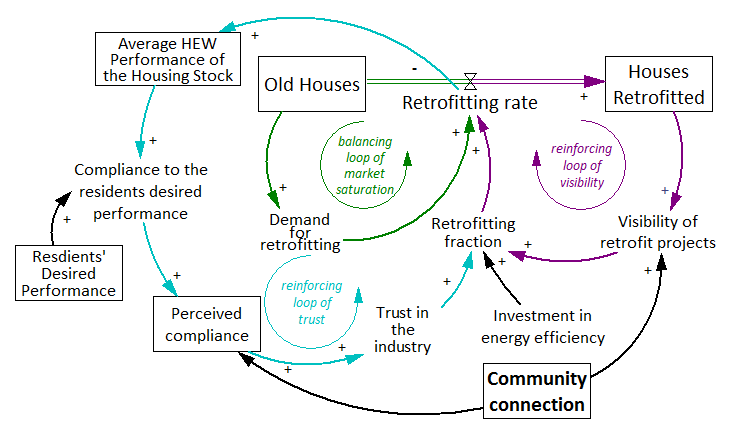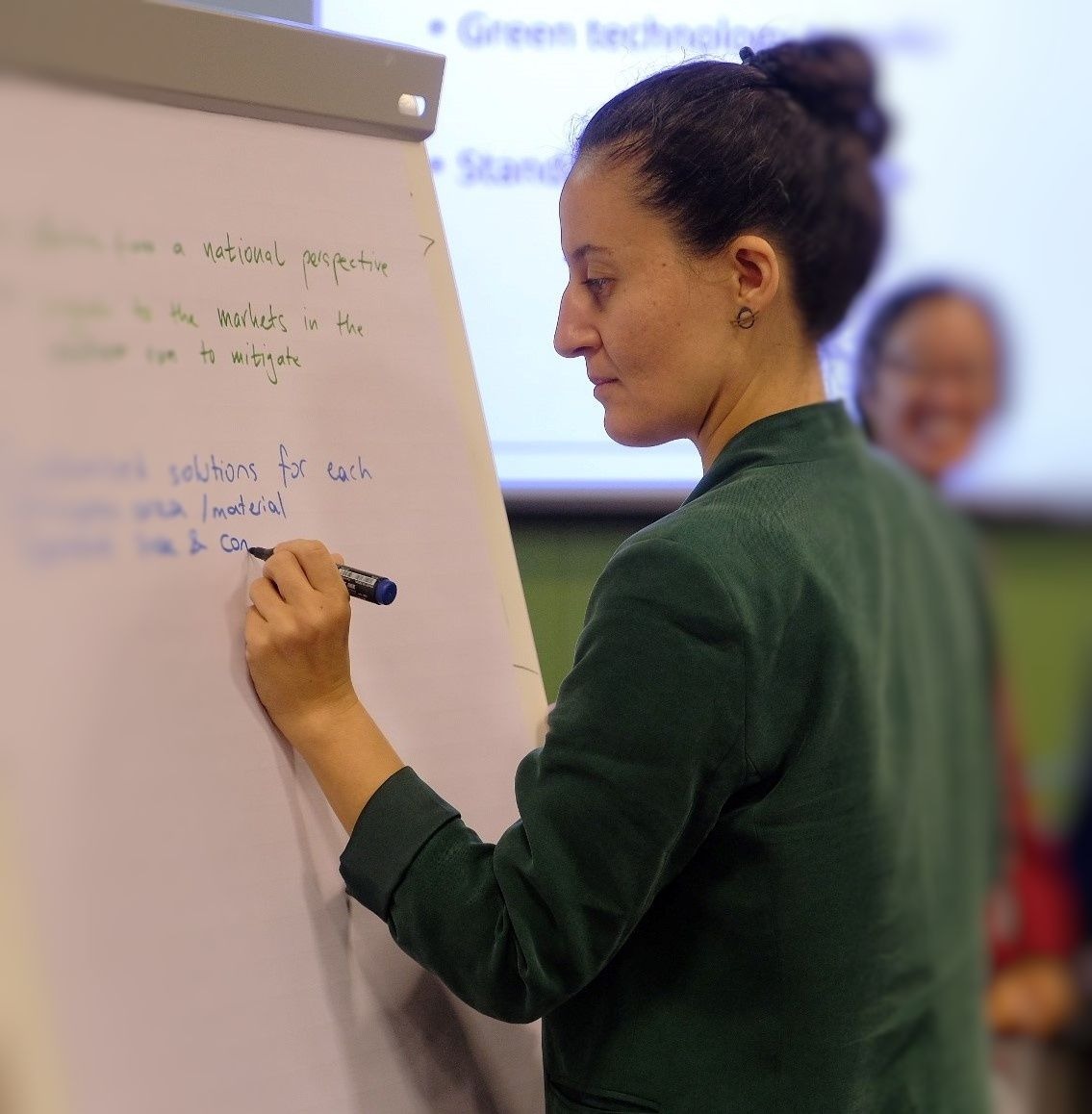Current projects
WorldTrans - Transparent Assessments for Real People
Funded by Horizon Europe, with an overall goal to aid the transformation to a climate neutral future by improving Integrated Assessment Models (IAMs), WorldTrans will provide an improved, user-friendly, and transparent approach to using IAMs in support of democratic decision-making for climate neutrality. An underlying working hypothesis is that by building intuition using simpler models it will be easier to make educated choices in terms of improvements in the costly process-based IAMs.
In WorldTrans, Sibel is leading the workpackage on incorporating human systems, social heterogeneity and drivers of low-carbon consumption to IAMs and earth system models. Her work focuses on the extension and use of the FeliX model for analyzing the interactions between the drivers of low-carbon behavior change.
Team members : Deepthi Swamy, Quanliang Ye
Data-driven understanding of low-carbon lifestyles (LOW-AI)
LOW-AI’s objective is to identify the feasible societal change potential towards low-carbon consumption and its key drivers for climate change mitigation on a global scale. For this purpose, we will analyze publicly available social media data to identify the current state of public interest and opinion in climate change mitigation. Sibel is the PI of LOW-AI, which is funded by ONRG.
Team members : Anna di Natale, Sandeep Chowdhary
Social Tipping Dynamics
Social tipping processes describe how social, political, economic or technological systems can move rapidly into a new system state if cascading positive feedback mechanisms are triggered. Interventions for activating these social tipping processes are promising levers for accelerating progress towards net-zero.
In this project, we build on recent literature and expert elicitation to explicitly characterise the feedback mechanisms, interconnections between systems, and monitoring variables, that collectively help explain social tipping dynamics.
In collaboration with : Charlie Wilson
Wellbeing in global systems modelling
In this project, we incorporate a well-defined and operationalized measure of wellbeing, Years of Good Life (YoGL) to the FeliX model by considering the dynamic interactions between economic growth, demographic changes, food supply and climate impacts.
In collaboration with : Qi Liu, Claudia Reiter, Michael Kuhn
CHOICE - Mainstream mitigation pathways for a climate-conscious change in the food chain
Funded by Horizon Europe, CHOICE aspires to mainstream IAMs, embedding them into the lifestyle choices and decision making process of consumers, producers and actors of the Food, Agriculture and Land Use sectors. This ambition is leveraged by a more realistic representation of behaviour change and actor heterogeneity aspects in IAMs, and supported by an approach that bridges social science and marketing tools, with the aim of accelerating climate action.
Sibel is leading the tasks on using the FeliX model for exploring behavior-driven food demand scenarios.
Past research
Developing feasible demand-side mitigation scenarios through understanding psychosocial dynamics of lifestyle change
Lifestyle change is an important demand-side measure for climate change mitigation. Referring to a reduction in the carbon footprint of individuals or households in various consumption areas, the mitigation potential of lifestyle change has been mostly assessed in top-down studies that assume a particular rate of reduction in consumption. However, whether these rates of change can be achieved or not, and under what conditions, is yet uncertain. In this project, I combine integrated assessment modelling with social simulation to investigate a feasible and effective rate of lifestyle change. Feasible adoption rates of low-carbon lifestyles will then lead to feasible demand scenarios for food, energy and material consumption. Data-driven (e.g. online social media) social simulation models help to identify the key drivers of such widespread lifestyle changes.
 Our work on sustainable diets, which couples the FeliX integrated assessment model with social dynamics has received wide attention, exemplified in this commentary
and the editorial. We extended this study on sustainable diets by exploring the usability of social media data across the world to quantify the model on a global scale. A global map showing the interest of the Facebook audience in vegetarianism, as described in Eker et al. (2021) can be seen here.
Our work on sustainable diets, which couples the FeliX integrated assessment model with social dynamics has received wide attention, exemplified in this commentary
and the editorial. We extended this study on sustainable diets by exploring the usability of social media data across the world to quantify the model on a global scale. A global map showing the interest of the Facebook audience in vegetarianism, as described in Eker et al. (2021) can be seen here.
We continue using social media data to analyze the drivers of low-carbon lifestyles on a global scale also for the home cooling case.
Publications
- Eker S, Garcia D, Valin H, van Ruijven B. (2021). Using social media audience data to analyse the drivers of low-carbon diets. Environmental Research Letters 16, 7.
- Eker S, Reese G, Obersteiner M (2019). Modelling the drivers of a widespread shift to sustainable diets. Nature Sustainability 2: 725-735.
Co-production of mitigation scenarios through simple IAMs and interactive simulations
Climate Interactive enables everyone to develop their own scenarios of climate solutions with interactive simulation environments such as C-ROADS and En-ROADS.
Behind these interactive simulation environments, there are globally aggregate integrated assessment models of climate, energy and economy. In the development, maintenance and update of these models, I focus on the economic impacts of climate change and land-based mitigation options.

Deep Demonstrations of Forging Resilience
The impacts of climate change involve slow-onset changes, extreme events and increasing systemic risks. EIT Climate-KIC takes a systems innovation approach to forging resilience, working with regional governments and city authorities in Andalusia (Spain), Nouvelle Aquitaine (France), the Dolomites area (Italy) and Glasgow (UK).
 Within the IIASA team, I led the participatory systems modelling activities. I introduced the project partners and stakeholders to systems mapping as a tool to understand system interactions and cultivate systems thinking.
I trained local partners on system dynamics modelling in Nouvelle Aquitaine.
Within the IIASA team, I led the participatory systems modelling activities. I introduced the project partners and stakeholders to systems mapping as a tool to understand system interactions and cultivate systems thinking.
I trained local partners on system dynamics modelling in Nouvelle Aquitaine.
Mitigation potential and co-benefits of enhanced weathering
Safe and scalable negative emission technologies (NETs), which actively remove carbon dioxide (CO2) from the atmosphere and ensure long-term carbon sequestration will be needed to meet the Paris agreement, in addition to conventional climate change mitigation measures. Within the Imbalance-P project funded by ERC Synergy Grant 610028, I work with collaborators from the University of Antwerp to investigate the global mitigation potential and agricultural co-benefits of land-based NETs, particularly enhanced weathering of basalt rock. We use the FeliX model to explore various future scenarios.
Publications
- Vicca S, Eker S, Goll D, Meysman F, Hartmann J, Janssen I, Obersteiner M (in preparation). Potential and Deployment Strategies of Enhanced Weathering - C storage with co-benefits.
- Goll DS, Ciais P, Amann T, Buermann T, Chang J, Eker S, Hartmann J, et al. Potential CO2 removal from enhanced weathering by ecosystem responses to powdered rock. Nature Geoscience (2021).
Validation of uncertainty-oriented systems models
With a two-year fellowship offered by the IIASA Postdoctoral Program, I designed and led this project on the validation of uncertainty-oriented systems models. I combined the validation approaches from decision sciences and environmental science, and employed an extensive literature analysis as well as an online survey conducted among modelling practitioners. Here is a commentary about why this work on the validity of policy models is important.
Publications:
-
Eker S, Rovenskaya E, Obersteiner M, Langan S (2018). Practice and perspectives in the validation of resource management models. Nature Communications. 9 (1): e5359.
-
Eker S, Rovenskaya E, Langan S , & Obersteiner M (2019). Model validation: A bibliometric analysis of the literature. Environmental Modelling & Software 117: 43-54.
-
Eker S. (2020). Validity and usefulness of COVID-19 models. Humanities and Social Sciences Communications 7, 54.
National systems mapping of well-being
Measuring well-being has become a major theme in public policy and governance in recent years, as researchers and policy makers attempt to unpack what exactly constitutes a “good life”. In this project, together with colleagues from IIASA and
and National Economic Council of Israel, we developed a conceptual model of natural, economic, and social systems interactions behind national well-being.
Based on OECD’s Better Life Index, designed to measure a nation’s progress and welfare beyond conventional metrics such as Gross Domestic Product (GDP), I specifically worked on how human capital is formed and how it affects national well-being. We identified the interconnections between the OECD indicators following a grounded theory approach on academic literature. Hence, it brought a systems thinking perspective to current compartmental well-being measurement approaches.
Publications:
- Eker, S, Ilmola-Sheppard, L. (2020). Systems Thinking to Understand National Well-Being from a Human Capital Perspective. Sustainability 12 (5): 1931.
Resilience of the Transport Network in Bangladesh
This project at TU Delft, funded by the World Bank, evaluated the vulnerabilities of the Bangladesh’s multi-modal transport network to climate change, specifically to flood events. I contributed to the development of a TCP-based distributed simulation architecture called Sim0MQ (based on ZeroMQ messaging library) and incorporated it into the model-based scenario analysis software [EMA-Workbench](https://emaworkbench.readthedocs.io/en/latest/. I also worked on generating georeferenced flood scenarios.
Publications:
- Eker S, Kwakkel J (2018). Including robustness considerations in the search phase of Many-Objective Robust Decision Making. Environmental Modelling and Software 105: 201-216.
HEW: Integrated decision-making about Housing, Energy and Wellbeing
This project at UCL Institute for Environmental Design and Engineering was funded by EPSRC Platform Grant on Complex Built Environment Systems (CBES). It facilitated building a stakeholder platform for developoing an integrated view on UK’s housing and energy efficiency problem with a large group of participants from the industry, civil society, academia, and national and local governments.
 Within this project, I organized and coordinated the stakeholder workshops, contributed to facilitation of participatory modelling activities, and developed a system dynamics simulation model to understand the mechanisms behind fragmented
decision making in the UK’s housing sector. We also simplified and converted this simmulation model into an online interactive simulation environment
(HEW-ISE) to be used in stakeholder workshops.
Within this project, I organized and coordinated the stakeholder workshops, contributed to facilitation of participatory modelling activities, and developed a system dynamics simulation model to understand the mechanisms behind fragmented
decision making in the UK’s housing sector. We also simplified and converted this simmulation model into an online interactive simulation environment
(HEW-ISE) to be used in stakeholder workshops.
Publications:
- Eker S, Zimmermann N, Carnohan S, Davies M (2017). Participatory system dynamics modelling for housing, energy and wellbeing interactions. Building Research & Information 46 (7):738-754.
- Eker S, Zimmermann N (2016). Using Textual Data in System Dynamics Model Conceptualization. Systems 4 (3):28.
Dealing with uncertainties in the Dutch gas sector: An exploratory modelling and analysis approach
My PhD project was within a large research program called Energy Delta Gas Research (EDGAR), funded by the Dutch natural gas production and utility companies, as wells as the Ministries of Internal Affairs and Finance.
I worked towards providing policy recommendations based on the robust decision making framework that acknowledges deep uncertainties. Using a system dynamics simulation model I developed to capture the natural, economic and social dimensions of the Dutch energy sector, I explored the plausible futures of the supply and demand dynamics of natural and renewable gas (biomethane), and investigated the effectiveness of various policy options, such as subsidization.
Publications:
- Eker S, van Daalen E, Thissen W (2017). Incorporating stakeholder perspectives into model-based scenarios: Exploring the futures of the Dutch gas sector. Futures 93: 27-43.
- Eker S, van Daalen E (2015). A model-based analysis of biomethane production in the Netherlands and the effectiveness of the subsidization policy under uncertainty. Energy Policy 82:178-196.
- Eker S, Slinger J, van Daalen E, Yücel G (2014). Sensitivity analysis of graphical functions. System Dynamics Review 30 (3):186-205.
- Eker S, van Daalen E (2013). Investigating the effects of uncertainties in the upstream gas sector. International Journal of System of Systems Engineering 4 (2):99-139.
